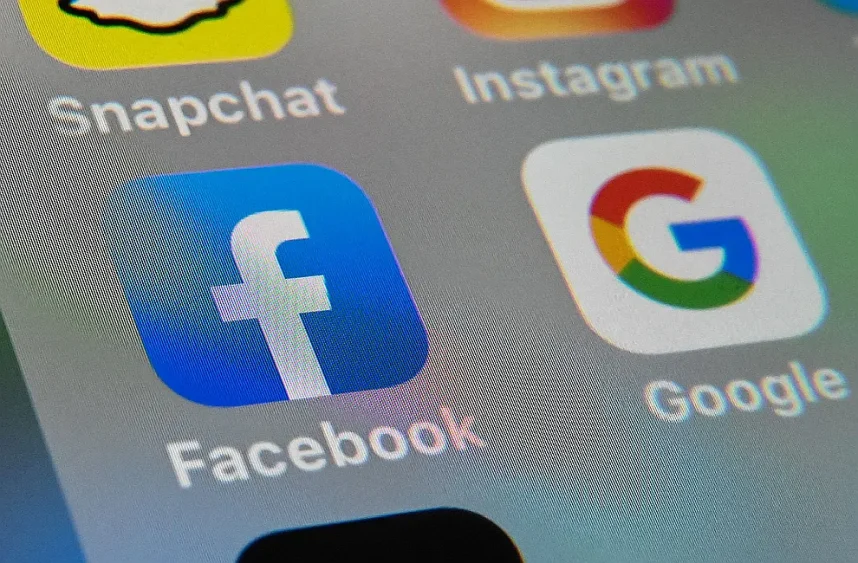Gambling Ads Land Google, TikTok and Facebook in Trouble in Brazil
Posted on: December 22, 2023, 06:44h.
Last updated on: December 22, 2023, 10:57h.
Only days after streaming platforms faced problems in Italy because of gambling ads, Facebook, Google, and TikTok are now in trouble elsewhere. Brazil has targeted the social media and tech giants for the same issues.

The Ministry of Finance (MoF) has issued notifications to the trio of companies for failing to adhere to established gambling ad guidelines. The ministry has previously held four meetings with these companies to emphasize the need for compliance. But ongoing irregularities have prompted further action, according to media outlet Olhar Digital.
The MoF noted that a significant portion of sports betting communication, advertising, and marketing activities haven’t been in line with current regulations. Specifically, the majority of media broadcasts haven’t featured age restriction notices or warning clauses.
The ministry has also observed a lack of clear age verification mechanisms, allowing minors to easily access and engage with sports betting platforms. This has raised concerns about the potential for underage gambling.
What’s Next
In response to these violations, the ministry has instructed the tech giants to implement immediate corrective measures to ensure compliance with the established guidelines. This includes incorporating clear age restriction notices and warning clauses in all sports betting advertising, particularly on social media platforms and online platforms.
The MoF also warned the companies that further noncompliance could result in administrative sanctions. This could include fines and potential removal of their platforms from the Brazilian market.
The move is expected to set a precedent for other tech companies operating in Brazil, and encourage them to prioritize responsible advertising practices. This is in line with an ordinance that establishes a regulatory framework for the accreditation of sports betting sites, and outlines responsible gaming guidelines to promote safe and ethical gambling practices.
The ordinance prohibits the placement of sports betting advertisements in schools and universities, ensuring that adolescents aren’t exposed to gambling messages early on. It also mandates clear and visible warning or prohibition seals to indicate that these ads aren’t intended for minors.
Additionally, the ordinance prohibits any messaging that portrays betting as a source of income, investment, or a means to compensate for financial losses or unemployment. This is crucial to prevent individuals from gambling with the expectation of recouping losses or solving financial hardship.
The ordinance further prohibits the use of sexual appeal or virtues such as courage and maturity in gambling advertising. These tactics can appeal to emotional triggers and exploit vulnerable individuals, further reinforcing the need for responsible marketing practices.
Less Influence from Influencers
To curb misleading advertising and unrealistic expectations, the ordinance also prohibits marketing that falsely inflates the likelihood of winning or suggests that gambling is a path to personal or financial success. This includes advertisements featuring celebrities or influencers who endorse gambling activities.
That’s in line with broader legislation covering influencers and their relationship with Brazilian gambling. This past Tuesday, the Communication Committee of the Brazilian Chamber of Deputies approved a proposal that makes influencers responsible for ensuring that their videos, stories, and other forms of communication don’t promote unregulated gambling.
Failure to comply with the new regulations will result in penalties for influencers and social media platforms. Influencers who violate the rules may face warnings or suspensions of their activities for up to six months, which could be extended in some cases.
Social media platforms can also be held responsible. They could be subject to fines of up to 2% of their company’s revenue for allowing influencers to promote unregulated gambling on their platforms.
Related News Articles
Casinos Could Be Coming To Indigenous Villages in Brazil
Peru’s Gaming Regulator Fines More Than 30 Casinos Over Violations
Brazil’s Video Games, Daily Fantasy Sports, eSports Could Win ‘Industry’ Tag
Most Popular
Mirage Las Vegas Demolition to Start Next Week, Atrium a Goner
Where All the Mirage Relics Will Go
Most Commented
-
Bally’s Facing Five Months of Daily Demolition for Chicago Casino
— June 18, 2024 — 12 Comments -
Chicago Pension Mess Highlights Need for Bally’s Casino
— July 2, 2024 — 5 Comments
















No comments yet